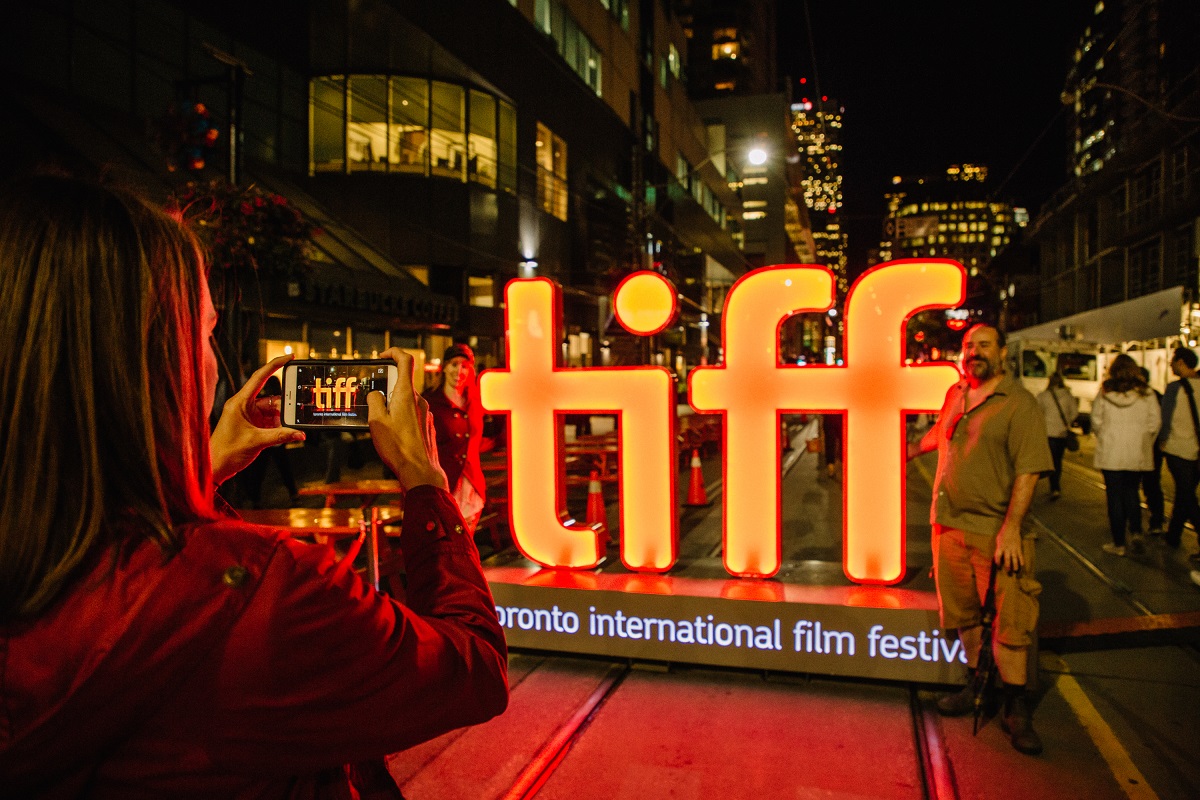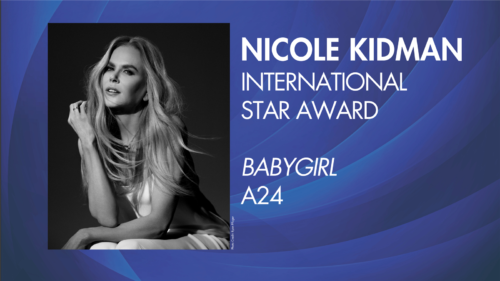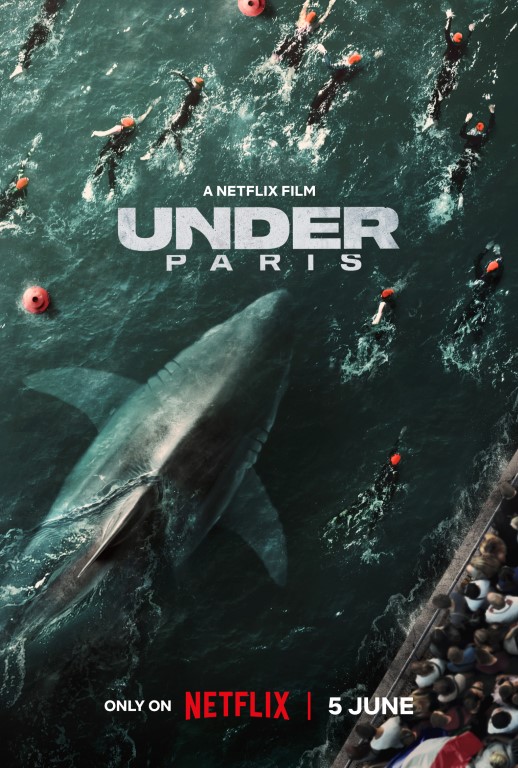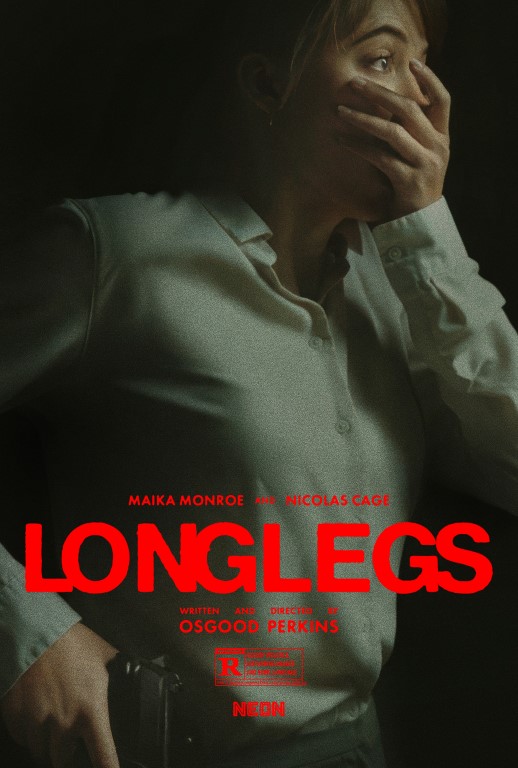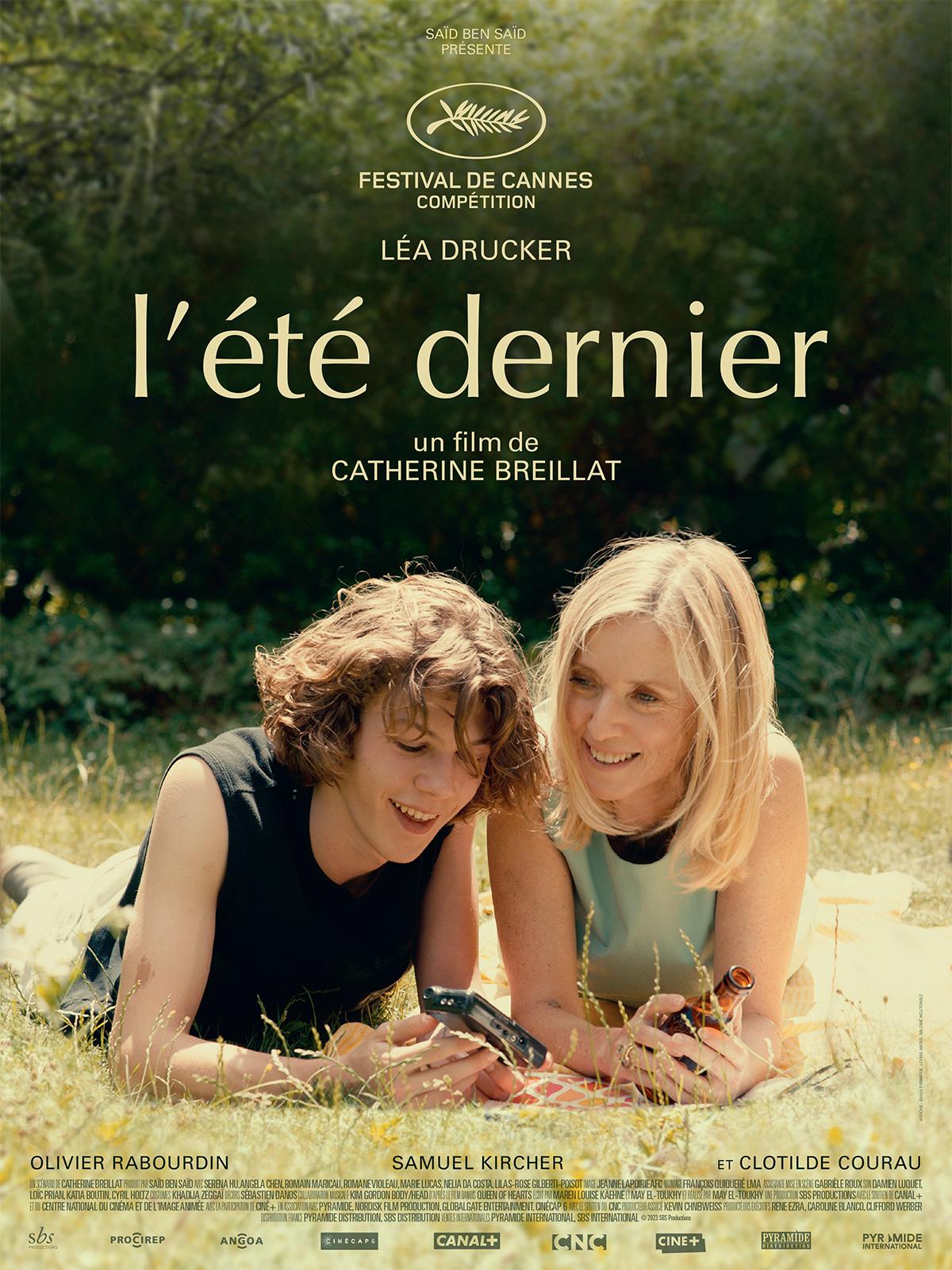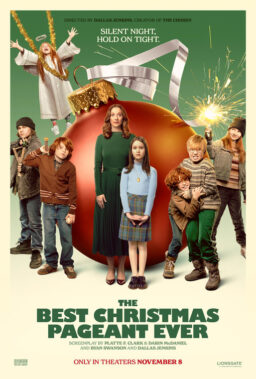2021 marks my twenty-fifth year attending the Toronto International Film Festival as accredited press, and it most certainly was the strangest yet by far.
Over this quarter century I've witnessed TIFF emerge as the leading fall festival and most important public film gathering in the world (sorry, Berlin). For at least two decades, it's been the best Oscar prognosticator, and home to more than its share of films celebrated for Acting, Directing and even Documentary as well. I was here when it was still emerging from its Festival of Festival status, a provincial collection of titles from mostly European premieres making their way to local audiences, until it grew to showcase hundreds of films from around the world.
I was there on that Tuesday morning 20 years ago when dozens of New Yorkers watched the news of Twin Towers collapsing with a keen helplessness, far more surreal and shocking than any film. I was here when the beginnings of the 2008 market crash happened, making certain producers all the more financially jittery. I've seen the rise of the streamers and the contraction of the independents, with television shows added to the selections. I've seen programming tastes shift from the bold, experimental, shocking and occasionally disturbing to a more generally palatable slate, where content warnings are added to the bottom of each description and distinctions between the proclivities of the artist and the caliber of their art are no longer made with the same sense of resoluteness.
Last year's online-only festival felt like a blip as we were getting used to life during a global pandemic, but this year feels even more like something has fundamentally shifted, and often not for the better. Unlike all the other major festivals of this period—Venice, Telluride, NYFF, San Sebastian—TIFF made the decision to showcase the vast majority of films on its digital platform.
For COVID reasons, of course, this decision makes perfect sense. For this freelance journalist, personally, it's been a death knell to many opportunities, given that many editors could simply cover the exact same titles as me on the ground, thus eliminating any advantage for the cost outlays or time spent navigating protocols to attend in-person. To make things even worse, many key titles were actually blocked for Canadian press (or even Canadians such as myself covering for international publications), while free to stream for those outside the country where the festival was taking place.
This "inside baseball" nonsense may seem trivial in the grand scheme of things. Yet when you pair that feeling of loss with a genuine sense that things were not quite right, and that the descent had begun well before a plague changed the rules of the game. It seemed pretty dire this year. Much of the electricity of the festival had been shorted out, and the streets, as well as most screenings, were bare beyond the 50% capacity due to COVID restraints.
The majority of films lacked the usual glitz and glamour, and there was a clear recognition that many A-list titles, be they arthouse or Hollywood, were skipping Toronto to gain attention elsewhere. Throughout there was a pallor, with a palpable feeling that this festival's reputation as the bulwark of the late-summer festivals and the central home for the vast majority of films that would dominate discussion during awards season was being burnished.
King Street is usually home to thousands of people milling between screenings as part of "Festival Street" celebrations, and despite the complaints from local commuters truly does help make the downtown core feel like the home for cinema during this window. Obviously this was dropped, but the sense of the event's place within the city was diminished even more due to the vagaries of the ticketing system. Forced to pick 10 titles, no matter how many were being used, many simply reserved tickets they never had intention to use. This, combined with a general unease about public gatherings, resulted in events that were targeted as "sold out" with their 50 percent capacity yet often had far fewer actual attendees, making the usually packed premieres feel all the more sparse.
Then there are the films of world class caliber that played the other festivals that simply were not screened here as they have been in the past. Some may have been rejected for programming reasons, but given the caliber of films like Paul Verhoeven's "Benedetta" (playing NYFF) or Sean Baker's "Red Rocket" (that played Telluride), and how previously "Elle" and "The Florida Project" saw great success here, it's hard to make sense of it all from the perspective of an audience member who cares little about the vagaries of distributor contracts, the divide between screening rights vs streaming rights, etc.
Yet despite all these challenges and complications, there were still moments to cherish, discoveries to be made, experiences to remember and many, many films to celebrate.

Take "Saloum" as a prime example, Jean Luc Herbulot's wild tale of mercenaries who crash land and find themselves wrestling with demons from the past. Programmed as part of the Midnight Madness slate, the storied sidebar that has showcased exceptional films over the years including "The Raid," "What We Do In the Shadows" and "Man Bites Dog," this film felt more fresh and exciting than a dozen other dreary offerings in the general sections.
While I caught "Titane" at Cannes, I was pleased that local audiences favorably responded at TIFF, especially given the obvious aesthetic connection to Toronto's favorite body horror auteur David Cronenberg. And Arsalan Amiri's Kurdistani demonic thriller "Zalava" builds its slow boiling dread to a climax which is fabulous, making for a film that feels philosophically rich, politically astute, and absolutely thrilling.
I couldn't stomach more than 40 minutes of "DASHCAM," Rob Savage's follow up to "Host" that again uses the shtick of witnessing a film through the filter of technology—the whole thing is as insufferable as its lead character. As someone who almost never bails on films, no matter the circumstance, this was that rare occurrence where I simply had to throw in the towel. Yet given that many responded favorably, this is indeed the kind of provocative film that has helped make the sidebar so exciting to explore, where the highs are high, and the lows so very, very low.
On the local front, "Scarborough," named after the region of Eastern Toronto, which is home to a wide and diverse community, is a touching, effective look at underserved populations. Thanks to strong performances and a well-crafted narrative it achieved runner-up status for the People's Choice Award, a rare accomplishment for a Canadian film.
The main People's Choice Award winner, Kenneth Branagh's "Belfast," echoes "Roma" with its hazy, black-and-white remembrances of a childhood in transition, and while it may have lacked some of the urgency and anger of Cuarón's fellow People's Choice winner, it's still an exceptional movie with a fantastic lead by Jude Bell that's certain to be talked about next Oscar season.
The third runner up for People's Choice, Jane Campion's "The Power of the Dog," took home the directing award in Venice, and for me had pleasant echoes to Paul Thomas Anderson's sublime "There Will Be Blood" (this before I realized it was Jonny Greenwood doing the score for both!). TIFF Tribute winner Benedict Cumberbatch appears in superior form, but it's Jesse Plemons' quiet grace, and Kodi Smit-McPhee's subtle, riveting performance that truly make the film shine.

There were showcases of a couple other major works by those with strong Torontonian roots. Denis Villeneuve, who shot "Enemy" here in all its arachnid glory, brought "Dune" to my beloved Cinesphere, the geodesic dome on the waterfront that's home to the world's first permanent IMAX theatre. After so much anticipation I was thrilled with the results of the film's character development and visual style, even if it was a bit unnerving to see how the exposure of the narrative's shortcomings were laid bare. I truly believe this adaptation to be perfectly in keeping with the requirements of Frank Herbert's tale, and thanks to an incredible ensemble it all feels very much like we're witnessing something grand and dynastic while keeping things impressively intimate.
Edgar Wright, whose "Scott Pilgrim vs. The World" is perhaps the most globally recognized ode to Toronto, focused a dreamlike gaze on his own city of London with "Last Night in Soho." Borrowing liberally from the metropolitan thrillers of Polanski, this musically savvy, boldly-lit psychological thriller lived up to heightened expectations.
TIFF has an absolutely epic track record with non-fiction cinema, and once again programmer Thom Powers and his team have found some exceptional titles outside the Sundance/IDFA/True-False/HotDocs slates. A wonderful paring was made with Stanley Nelson's "Attica" and Stefan Forbes' "Hold Your Fire," two remarkable takes on American society, the engagement with law enforcement, and the vagaries of the justice system.
I got to see two scuba-related, National Geographic docs at Cinesphere over two days, with Liz Garbus' wonderfully nuanced take in "Becoming Cousteau," which provides a great deal of depth in the story of this iconic inventor, educator and provocateur, and "The Rescue," Chai Vasarhelyi and Jimmy Chin's follow up to their Oscar winning "Free Solo," which also won the TIFF documentary People's Choice Award. Telling the 2018 true story Thai kids trapped in a cave system, this is an absolutely riveting film that plays with a certain degree of anxiety for non-divers, and for this cave-diving veteran was quite literally the most effective horror film I've seen in years, even knowing how it was going to end!
We shouldn't be surprised that Penny Lane can take a challenging topic and make it sing, but her "Listening to Kenny G" is a fascinating look at the divide between critical appreciation and commercial success. It's likely the title that would need the most convincing to get people to give a try, but the end result is truly worth having "Songbird" lay a discomfiting egg in your earholes.
There was a celebration of a Canadian Jazz legend in "Oscar Peterson: Black and White" that did what it set out to do, similar to "Julia," the warm take on celebrated cook Julia Child and her effect on American cuisine. Rebecca Hunt's "Beba" found plenty of fans, but my reaction was mixed, vacillating between its moments of abandon and self-analysis while slipping occasionally into the indulgent and narcissistic. It's a tough story to navigate, and some truly appalling behavior is shrugged off within larger conversations about race and belonging, but it's clear that it's a film that's well worth confronting.

Bianca Stigter's "Three Minutes: A Lengthening" is both emotional and cerebral, taking a rescued clip of life just before annihilation in pre-war Poland and looking ever closer at the faces of those long passed. At times it feels a bit like the end of "The Conversation" or even "Blow Out," where the closer you observe the more is illuminated. Yes, it's dry at times, but it's a fascinating process that by the end has you living in the spaces of these ghostly individuals captured inadvertently on film.
There were more than a few titles that were immediately forgettable, and I managed to navigate around seeing many of the truly egregious (though attempts to get people to skip "France" after its Cannes debut seem to have backfired). "Wolf" was probably the worst I saw in person, but even that seemed not worth howling about. Some bigger titles, like "The Eyes of Tammy Faye," felt all the more insignificant with each passing day, while some like "Silent Night" may have pleased from the outset but, as in the case of several titles, were completely undone by a misfired ending.
It's titles like "I'm Your Man," the unassuming sci-fi romcom, that really stuck with me. Ditto regarding "Petite Maman," Céline Sciamma's positively brilliant tale of two young people connecting through time. I liked "7 Prisoners," Alexandre Moratto's morality play about when the jailed become the jailer, and "Encounter," the Riz Ahmed-starrer about a father tearing himself up in an attempt to save his kids from an enemy he can't quite get a handle on.
Regarding some of the splashier titles, I found Kristen Stewart in "Spencer" enjoyable, if a little slight compared to the far superior film (and more fascinating character) in "Jackie." And while most of the world was set on mocking Ben Platt for not looking his age (let alone the age of his high-school character), I will steadfastly state that "Dear Evan Hansen" is perfectly ... fine? If anything, the social media outrage surrounding the premiere from those that hadn't even seen the film was so twistedly ironic given the subject matter of the musical that it made for some interesting debates over socially distanced drinks.

There were agreeable diversions, like Will Sharpe's "The Electrical Life of Louis Wain," where Cumberbatch fell into some of his traditional quirks that made him famous on shows like "Sherlock." I caught "Mothering Sunday," the Eva Husson post-Great War tale that I had missed in Cannes and was treated to a predictable tale predictable elevated by the ever sublime talents of Olivia Colman and Colin Firth.
In the end, the festival managed to screen a share of selections from other major festivals around the world, and didn't particularly land big with any title that was unique to Toronto. Whether or not this is an increasing indication that TIFF is once again turning into a "festival of festivals" is up for debate, and one can only guess what 2022 will bring in terms of audience involvement, how much will remain in-home and virtual, and so on. It's a precarious time for cinema in the best of cases, and festivals bear the brunt of much of the shifting changes in the industry and viewing habits of its patrons. Yet concerns about the decreasing importance of TIFF on the calendar were increasing before COVID ever happened, and for many the need for international press and patrons to join locals at this celebration of cinema was already being questioned.
I love this festival, and it's been my home for much of my cinematic education and many professional opportunities. I worry tremendously about its future well beyond concerns about the current plague, and see seismic shifts affecting its future. Witnessing a downtown core near empty of patrons felt all the more gut wrenching, even knowing the cause, a stark reminder of a diminished festival that we were spared during last year's lockdown-only event.
I do not for a moment begrudge the protocols put in place to maintain a secure health environment. While that process worked fantastically well, there was a myriad of other logistical elements that were downright embarrassing. From ticketing to screening windows nothing quite felt like it was working as it should, even though by the end of the festival many of the truly egregious elements had been repaired. Still, it was clear that in so many ways TIFF 2021 felt more than a bit broken. Time will tell if it can be rebuilt to what not so long ago it was, and whether the right people are in place at all levels of the organization to make this happen and steer things back on track.
There were moments of absolute joy, as there always are. There were brief encounters from friends from all over the world that come to attend. There were cinematic marvels that filled with joy and wonder, and even a gathering or two that felt, if very briefly, blissfully normal, where new friends are made and passionate discussions are held. It's this that I cherish about all festivals, but since TIFF is home, its diminution pains even more on a personal basis.
I can only hope the future for TIFF shines far brighter than it did in this challenging year, as we firmly take hold of this pandemic and find a way of making the festival recover its stature. For the heart of TIFF, beyond all the baggage that surrounds its selection process and logistical concerns, is to gather en masse, bathed in a flickering light from a projector, sharing that rare experience of discovery and wonder, and finding collectively something to truly cherish. I believe there are thousands, be they local or from around the world, that share this same hope.

